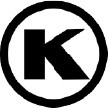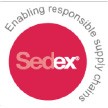Coconut Market Update 8th December 2025
December 8, 2025
Desiccated Coconut Desiccated coconut export prices remained steady at 147-190 ¢/lb FOB for the thirteenth…
The global and domestic coconut markets experienced mixed trends in the week ending 30 August 2025, with international vegetable oil prices generally softer, yet some coconut products resisted this trend. The market for coconut oil in Rotterdam remained subdued due to a lack of buying support, while domestic prices in the Philippines for crude coconut oil continued their upward movement. Desiccated coconut, both internationally and domestically, saw relatively stable to slightly higher prices.
Coconut Oil Experiences Mixed Movements Amid Global Softness
International coconut oil prices in Rotterdam, despite opening stronger in forward positions, mostly fell due to declining palm oil trends during the week. However, by the end of the day, prices mostly closed higher at $2,500 – $2,700/MT CIF for Europe, defying the overall weakness in palm oil. The average seller price for Europe was $2,585.35/MT CIF, down slightly by $5.60 from last week. The price premium of coconut oil over palm kernel oil exhibited a mixed trend, with the weekly average dropping sharply to $297.09/MT from $625.03/MT in the previous week, primarily due to significant reductions in deferred positions. In the Philippines, domestic crude coconut oil prices continued to strengthen, with sellers quoting P124.00 – P140.00/kilo, closing firmly at P135.00 – P140.00/kilo. Meanwhile, RBD coconut oil prices eased slightly, closing at P148.00 – P152.00/kilo.
Desiccated coconut remains stable with slight improvements. Export prices internationally for the USA, Europe, and other markets stayed steady at 145.00 – 180.00¢/lb. FOB, with an average seller price of 166.67¢/lb. FOB, unchanged from last week. Domestically, prices in Manila experienced a small increase, with the range at P5,136.00 – P5,422.00/100 lbs. bag, slightly above the previous week’s P5,135.00 – P5,420.00. The average local seller price was P5,279.00/100 lbs. bag, up P1.50 from the prior week.
Beyond pricing, the coconut industry is experiencing significant strategic developments. The Philippines is actively pursuing exemptions from the US reciprocal tariff on coconut products to support its major exports.
Meanwhile, Vietnam has strengthened its position as a leading exporter, ranking 5th worldwide and 4th in the Asia-Pacific region.
Overall Exports of Coconut from the Philippines
Looking at export data, we have seen that July overall exports for any coconut product from the Philippines were down 20% from June and 55% down YoY.
Looking at Desiccated, just 2% down YoY and 35% up from June, and
Oil was the most significant drop with 66% down YoY and 29% from June
Shipping and Container Prices
As of September 4, 2025, Drewry’s World Container Index (WCI) remained unchanged, falling only 1% to US$2,104 per 40-foot container. After 11 weeks of declining rates, this stability is reflected in mixed regional trends: a significant rise in Transpacific spot rates is offset by a steep drop in Asia–Europe routes.
Regional Trends & Outlook:
On the Transpacific front, spot rates rose—Shanghai to Los Angeles up 8% to US $2,522 per FEU, and Shanghai to New York up 12% to US $3,677 per FEU—due to General Rate Increases (GRIs) from carriers. Drewry warns these gains may not last without capacity cuts, especially with China’s Golden Week near. Asia–Europe rates fell—Shanghai to Rotterdam decreased by 10% to US $2,385 per FEU, and Shanghai to Genoa decreased by 7% to US $2,653 per FEU—due to ample vessel capacity, despite demand and port delays. Drewry predicts rates could soften further in late 2025 because of uncertain U.S. tariffs and emerging penalties on Chinese ships.
Note:
The Rotterdam market is rarely used nowadays. Most transactions are handled directly by major commodities traders, typically known as ABCD—Archer Daniels Midland, Bunge, Cargill, and Louis Dreyfus, with Wilmar also being a significant player. These firms buy directly from millers in the Philippines, thus bypassing the Rotterdam market. When we refer to a quiet market, it doesn’t necessarily mean no business is being done; rather, it is just not publicly disclosed. Therefore, it shouldn’t be seen as an indicator of the market’s overall health or future direction. The UCAP in the Philippines relies on this information for their market forecasts, as it is its only available resource, which we also pass on as part of our many information sources – we also do not have access to private trades other than our own.
We are testing an AI audio overview of this newsletter – click below to listen and let us know what you think
Why not subscribe to receive the latest market news straight to your inbox to clinch the best deal!
December 8, 2025
Desiccated Coconut Desiccated coconut export prices remained steady at 147-190 ¢/lb FOB for the thirteenth…
December 1, 2025
Desiccated Coconut Export prices for desiccated coconut remained stable for the 12th consecutive week at…
November 24, 2025
Desiccated Coconut: Export Prices Hold Firm Export prices for desiccated coconut remain stable at 147–190¢/lb…
November 17, 2025
Typhoon Fung Wong (locally called Super Typhoon Uwan) caused significant disruption to the coconut industry…
November 10, 2025
Over 1.4 million people were evacuated from flood and coastal-prone areas across the Philippines ahead…
November 4, 2025
Typhoon Thirty Two is a developing tropical system in the Pacific that meteorological agencies are…
If you require technical information about our products, then please login here to access the most up to date information...
Let's take a look at this...









